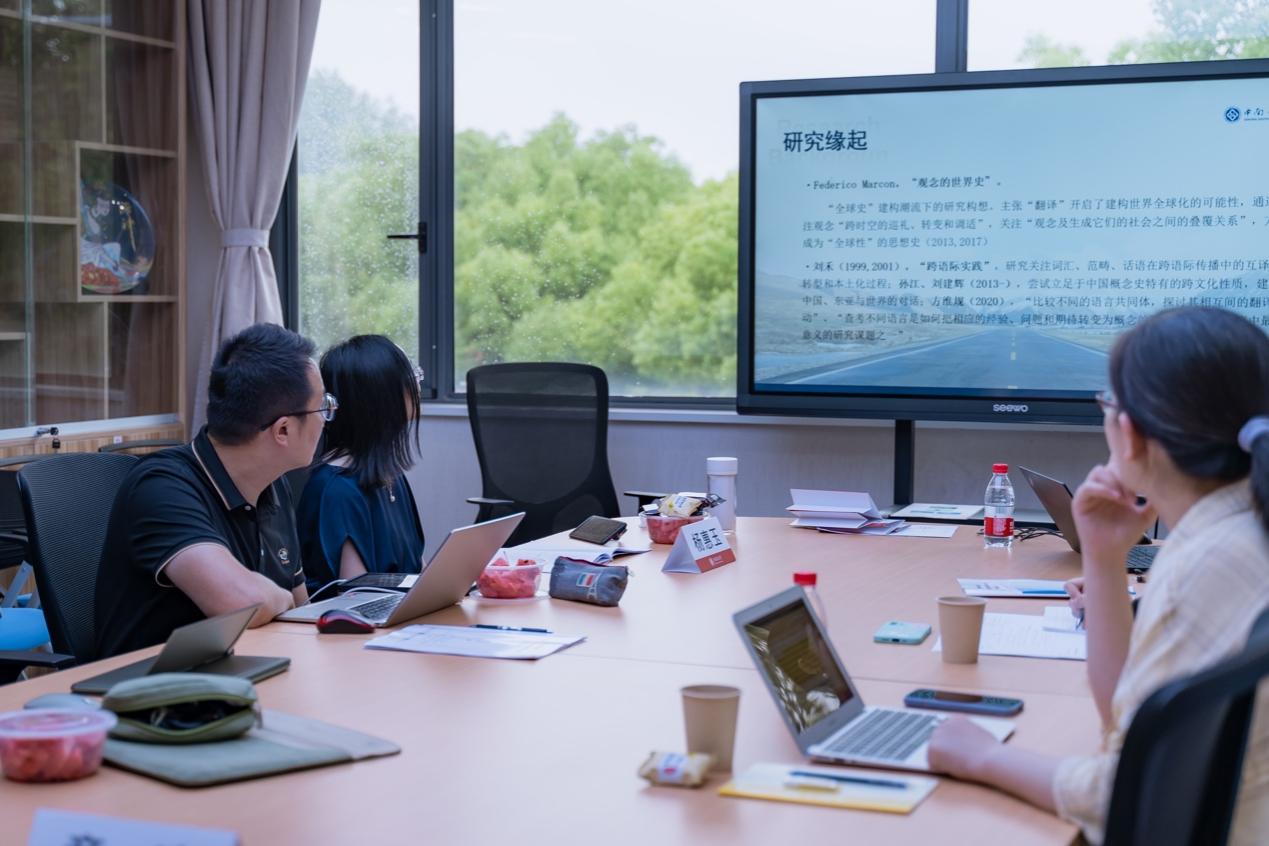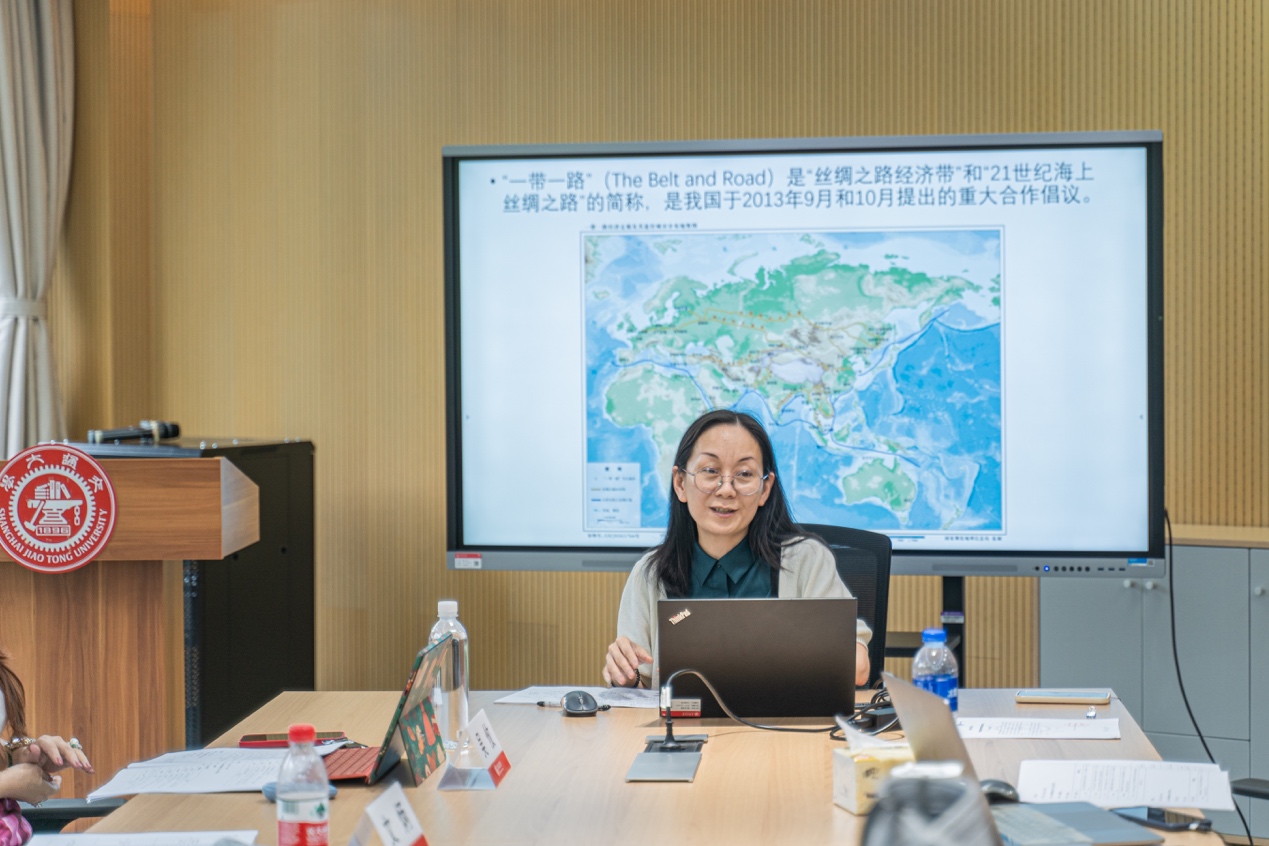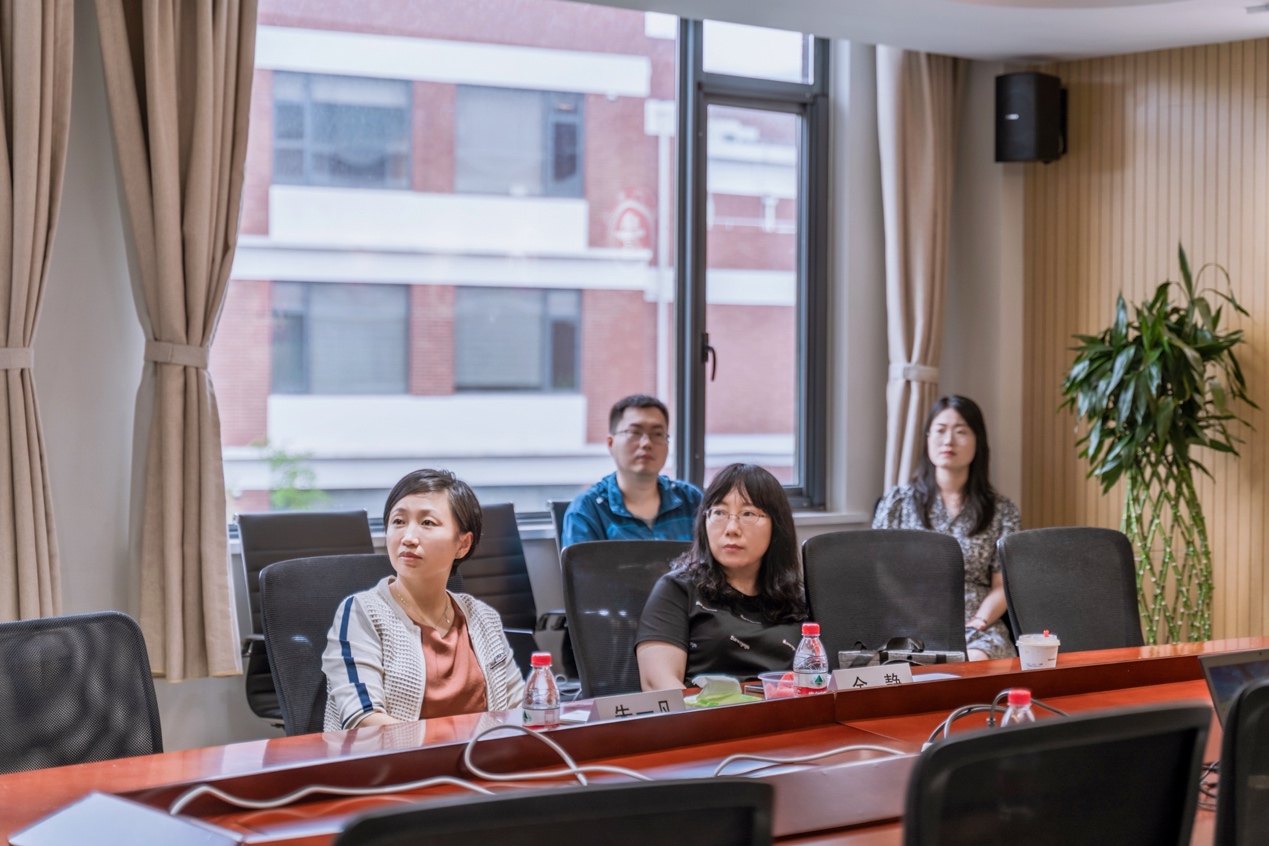SFL’s Center for Translation and Intercultural Studies Holds Symposium on Translation History of Concepts
On June 17, 2023, “Concepts, Translation, History—Symposium on the Theory and Practice of Translation History of Concepts” was successfully held at the School of Foreign Languages, Shanghai Jiao Tong University. Experts and scholars who have made significant contributions to lexical history, translation history, and conceptual history were invited to discuss in depth the research objectives, perspectives, and significance of translation history of concepts.
.png)
In his opening speech, Chang Hui warmly welcomed all the experts and scholars attending the meeting. He said that the Center for Translation and Intercultural Studies had long been known for its expertise in corpus-based translation studies and hoped to make new achievements in the study of translation history of concepts.
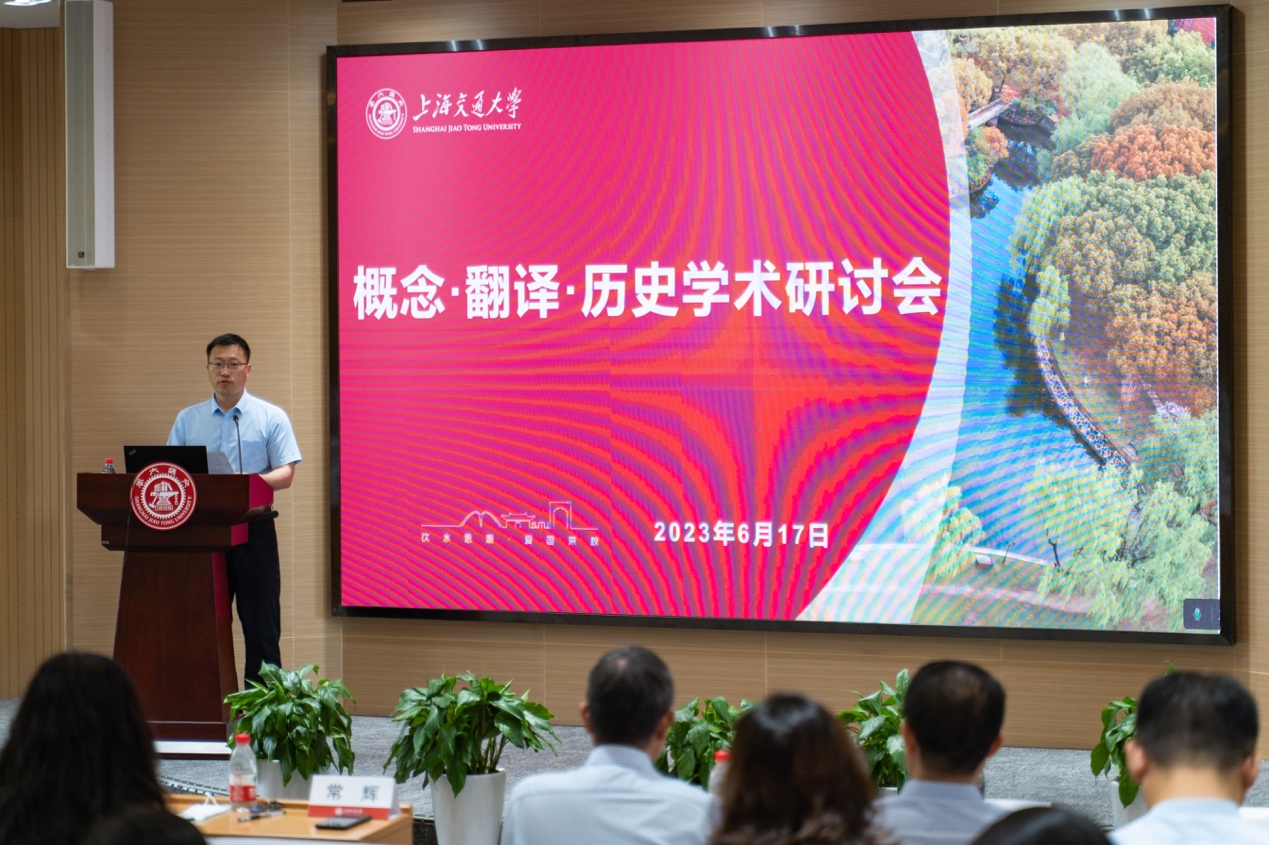
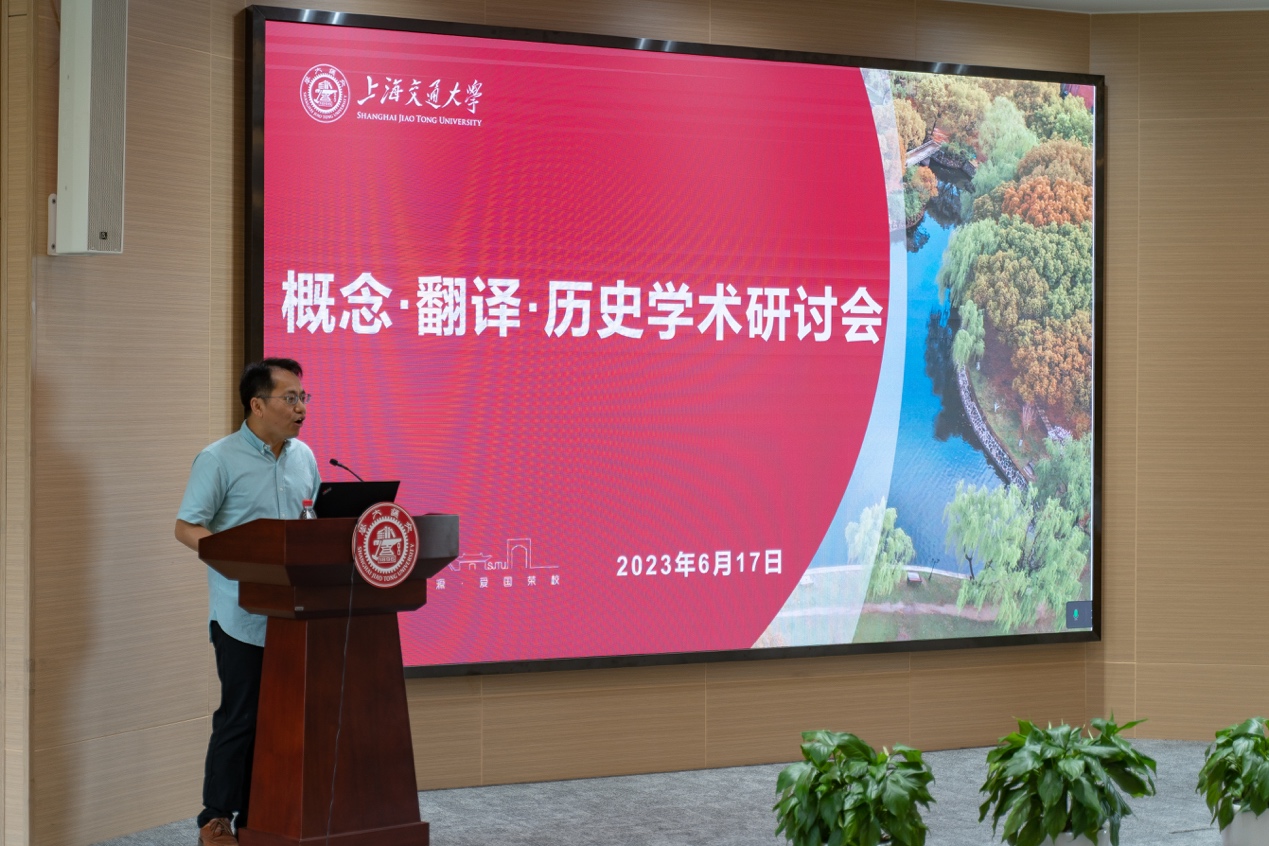
The first Keynote speech, “Conceptual History of Translation and Translation History,” was delivered by Professor Hu Kaibao from the Institute of Corpus Studies and Applications, Shanghai International Studies University. Hu Kaibao reviewed the development of conceptual history and differentiated the concepts of “conceptual history of translation” and “translation history.” He pointed out that the current academic discussions on the conceptual history of translation often ignored the macro context of translation history. Paying attention to the history behind conceptual translation can make the study of the conceptual history of translation more comprehensive.
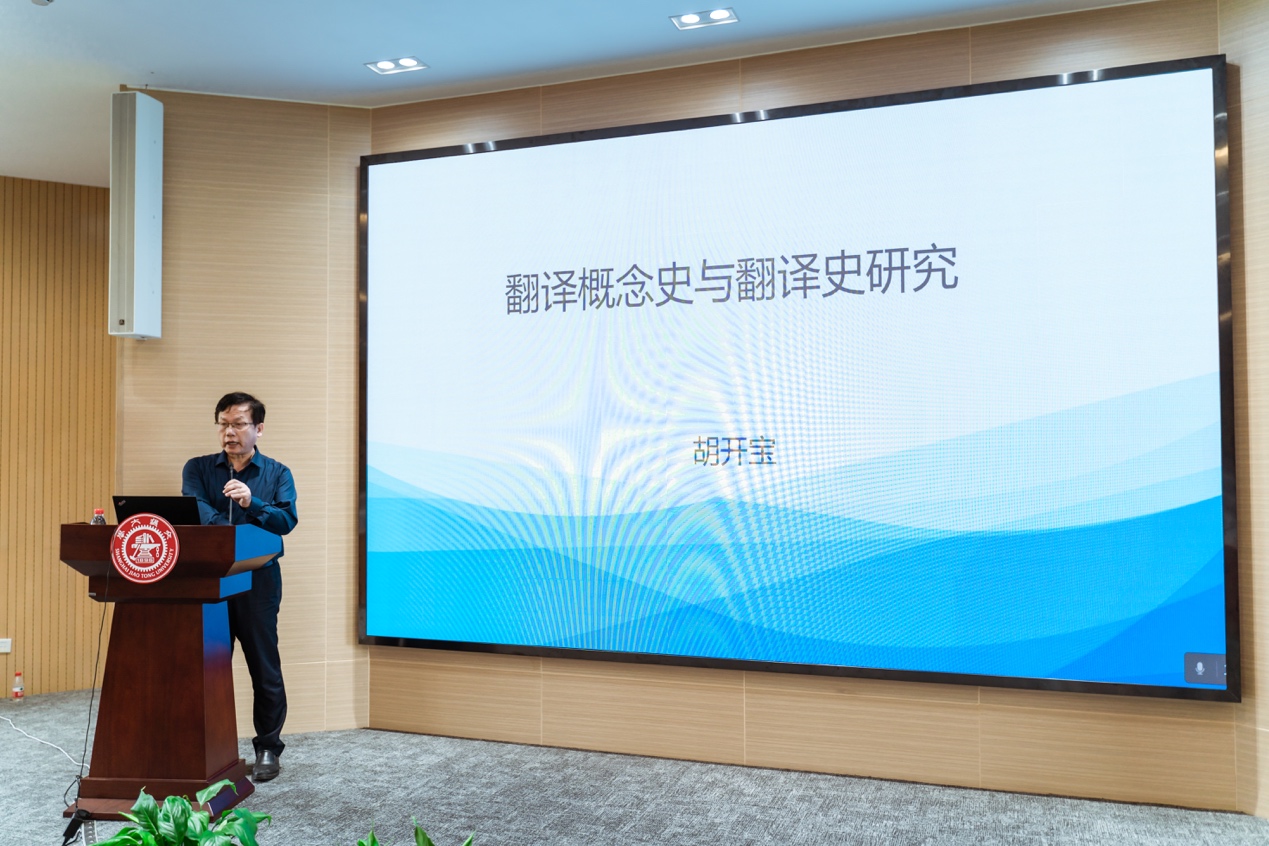
The second keynote speech, “Western Learning of the East and the Development of Modern Knowledge in East Asia: An Investigation Based on Translated Words,” was given by Prof. Shen Guowei from the Faculty of Foreign Languages, Kansai University, Japan. Taking the example of Nishi Amane’s Encyclopedia [百学連環], Shen Guowei thoroughly examined the origin and connotation of the translation of Japanese terms such as “science,” and further discussed the methodology and research resources of the study of conceptual history.
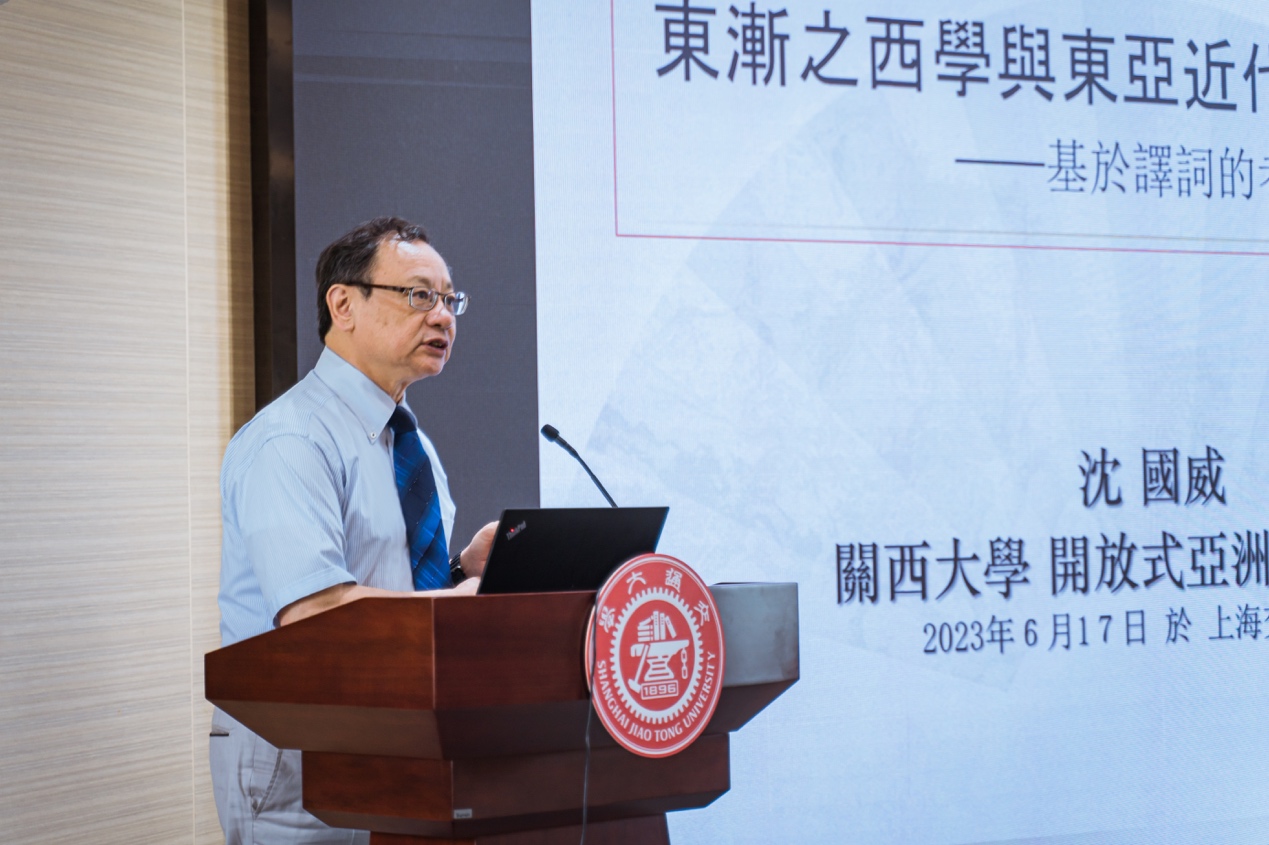
Professor Zhang Qing, from the History Department of Fudan University, delivered the third keynote speech on “Creating Something out of Nothing: The Context of the Concept ‘society’.” Taking the concept “society” as the starting point, Zhang Qing discussed the past and present understandings of the concept “society” in the Chinese context. He suggested that to comprehend “society”, we have to dig into “individual” understandings of the concept. The ancient and modern scholars live in “society”, and their perceptions of “society” have been constantly changing with the evolution of “society”.
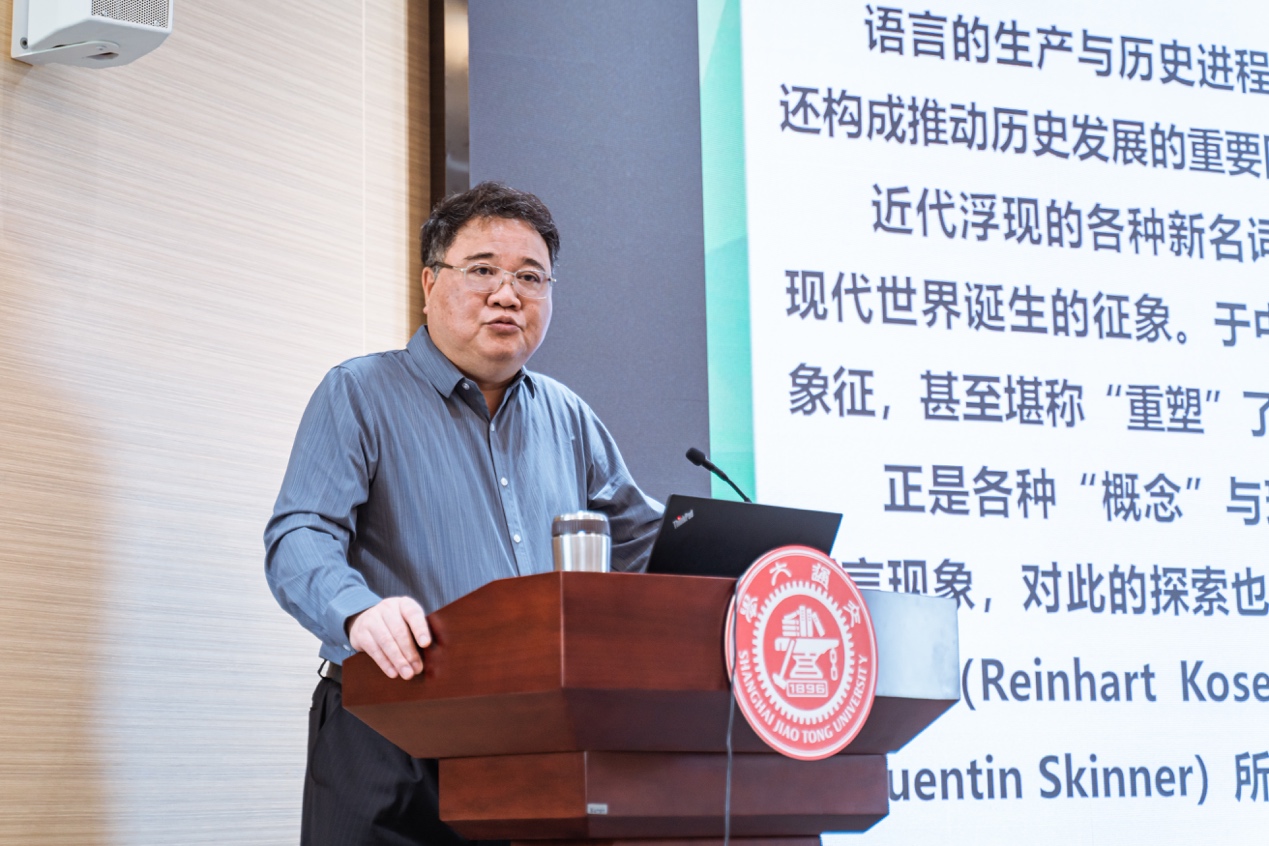
The fourth keynote speech, “Why is ‘Britain’ a Problem: A Study of the Sino-British Treaty of Yantai,” was given by Professor Qu Wensheng from the School of Foreign Languages, East China University of Political Science and Law. Qu Wensheng’s speech focused on the two words “Britain” and “jointly with”, and clearly explained the process of their changes in the translation of the treaty through the translator’s manipulation. He argued that translation is not only a part of historical events, but can also be considered as historical events. Researchers need combine translation with history studies in order to achieve more.
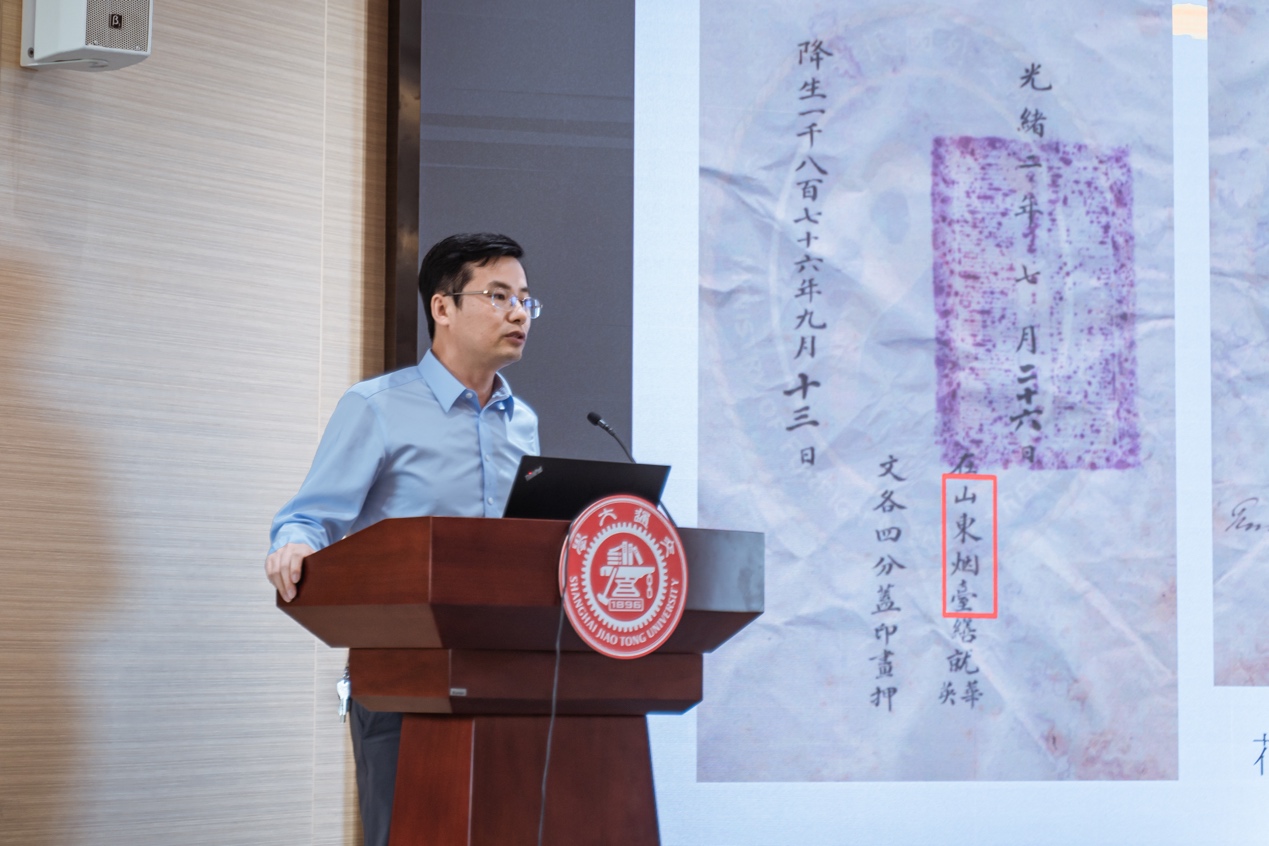
Professor Wen Bing, from the School of Foreign Languages of Zhejiang Sci-Tech University, delivered the fifth keynote speech on “Dilemmas and Strategies in Translating Chinese Ideological Concepts: Taking the English Translation of ‘Liangzhi’ as an Example.” After briefly introducing the original meaning of “Liangzhi” in Confucianism, Wen Bing examined Wang Yangming’s thoughts on the concept through comparing its various translations. He also brought up translation principles one can follow in translating classical Chinese concepts.
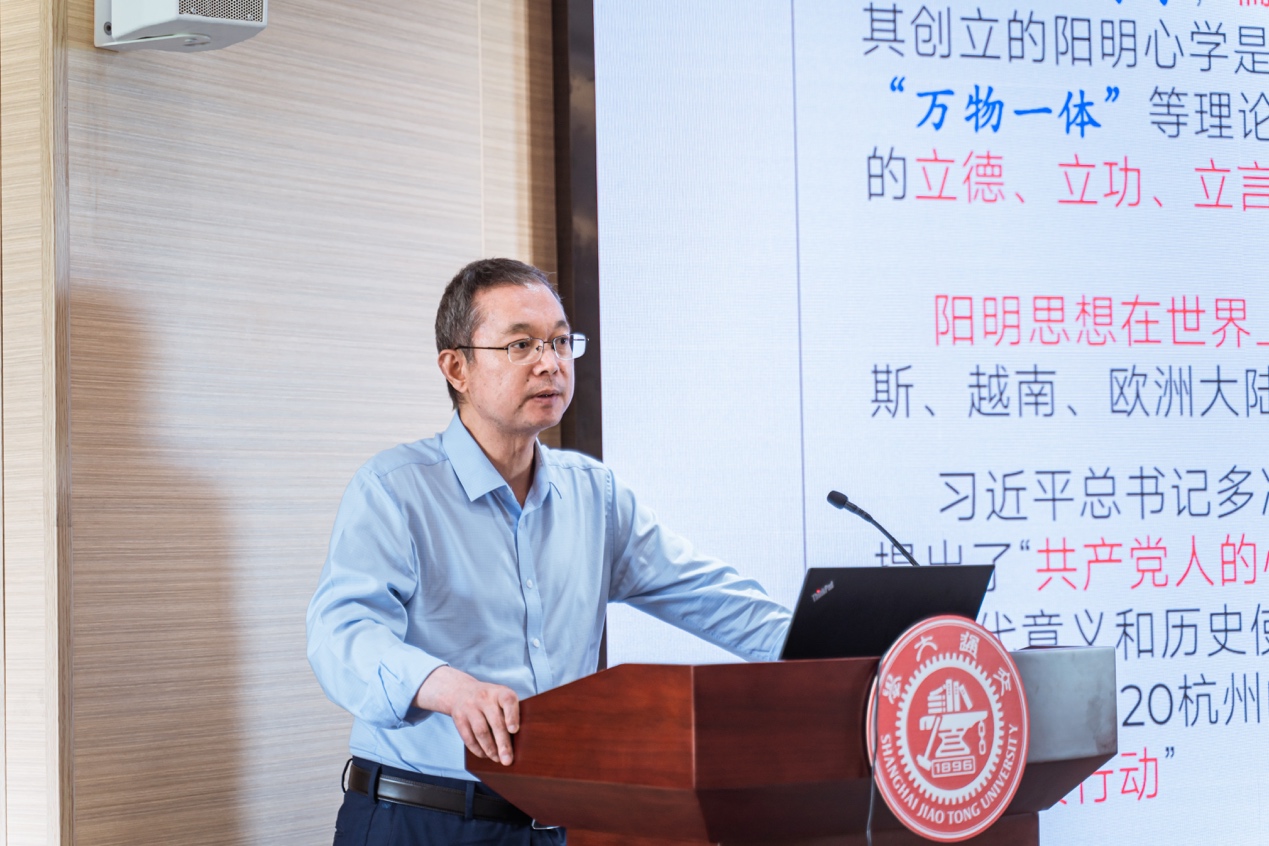
Professor Qin Hongwu, from the School of Foreign Languages of Qufu Normal University, delivered the sixth keynote speech on “The Intercultural Communication and Reception of ‘Ren’: a Historical Investigation”. Qin Hongwu’s talk mainly focused on the evolution of the concept “Ren” in Chinese context and the cross-cultural mediation of “Ren” when translated into English. He pointed out that missionary translations in the 17th-18th century attempted to integrate “Ren” and Christianity by engaging comparatively with the concept and Christian tradition.
.png)
The following Keynote speech “Time, Space and Relationship: Three Dimensions of the Study of Translation History of Concepts” was given by Professor Lan Hongjun from the School of Interpreting and Translation Studies, Guangdong University of Foreign Studies. Lan Hongjun analyzed the similarities and differences between the two terms “translation history of concepts” and “conceptual history of translation”. He pointed out that the two had the same research objectives, but their discipline orientations are not the same. Through studying the changing translations of “President”, “lion” etc., Lan reminded the researchers of this field to pay attention to the interaction of time, space and the relationship of various factors, and the connections between concept translation and social thoughts.
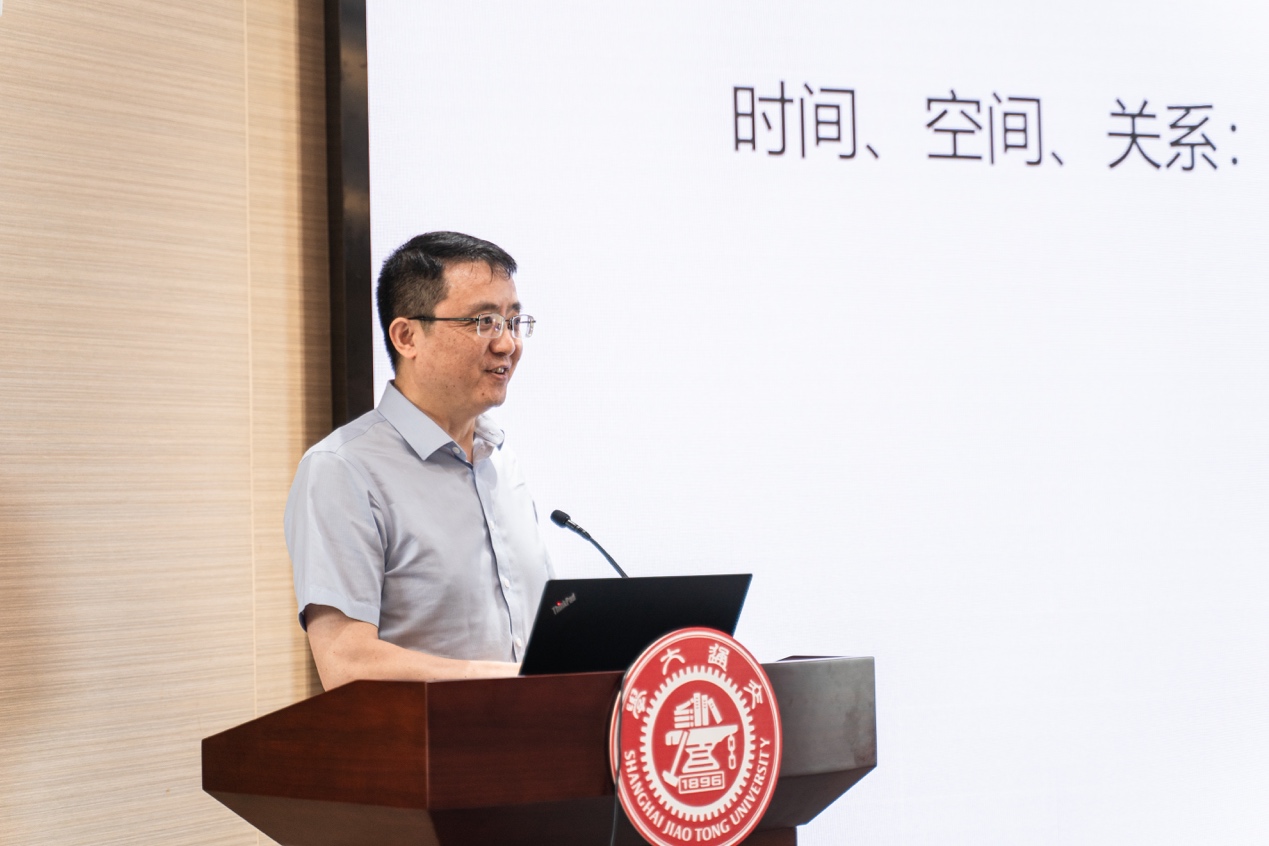
Professor Zhu Yifan from Shanghai Jiao Tong University delivered the last keynote speech on the translation and meaning reconstruction of ‘bourgeois(ie)’ in the translations of Communist Manifesto. Zhu Yifan first traced the etymological evolution of ‘bourgeois(ie)’ in ancient Latin, Old French and Middle English. By using the method of data mining in combination with the changing landscape of Chinese political, historical and cultural contexts, Zhu proposed that the notion of bourgeois(ie) in China has gone through shifts from a feudal concept to an economic one and finally a socio-political concept. In addition, the translations of Chen Wangdao and Cheng Fangwu & Xu Bing were scrutinized to illustrate the complexities underlying translation and meaning reconstruction in different historical periods.
.png)
After the keynote speech, there were five parallel panels, where participants from all over the country presented their papers and engaged in lively discussions with experts and scholars on various topics in translation history of concepts. The discussions in parallel panels brought the symposium to a successful close. This symposium has promoted interdisciplinary communications among scholars in the fields of translation studies and history studies, expanded the research path of translation history of concepts, and provided new insights and inspirations for this new field of study.
